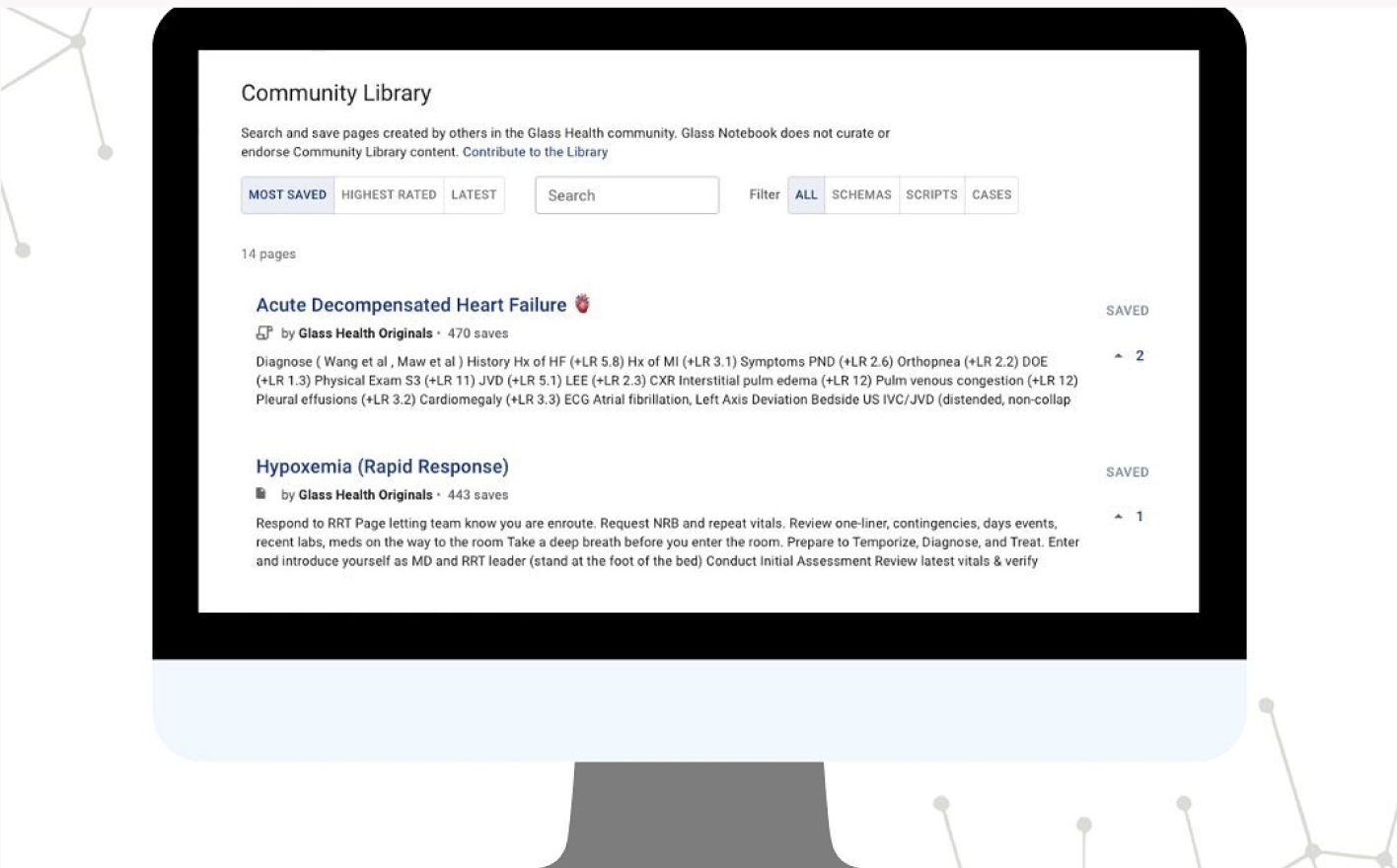Glass AI is a system that helps doctors learn, organize, and curate medical knowledge. It's an experimental tool that can help clinicians come up with a list of possible diagnoses and a plan for treatment. It's meant to be for a clinical audience, not for regular people searching the internet.
This AI-powered tool is more than just a diagnostic assistant. It's an interactive learning platform that facilitates the sharing and exchange of medical knowledge among doctors. Via a vast Community Library, doctors can not only accelerate their clinical mastery but also build and maintain their medical knowledge over time.
One standout feature of Glass AI is its specially designed note-taking system for clinical medicine. This allows clinicians to capture and connect their learning, optimizing the understanding and retention of medical knowledge. Through the sharing of schemas, scripts, and cases, doctors can support their colleagues and trainees, ultimately contributing to improved patient outcomes.
In the space of hematology, consider a hematologist presented with a patient exhibiting symptoms such as fatigue, shortness of breath, and paleness. The clinician could input these symptoms into Glass AI, which could then generate a differential diagnosis, potentially suggesting conditions like anemia, leukemia, or myelodysplastic syndromes. The AI could also draft a clinical plan, helping the doctor to formulate the next steps for further tests or treatment. This could significantly speed up the diagnostic process and help the hematologist consider a wider range of possibilities than they might have thought of independently. It's important to note that this is a hypothetical application and the efficacy would depend on the accuracy and comprehensiveness of the AI's training data and algorithms.
